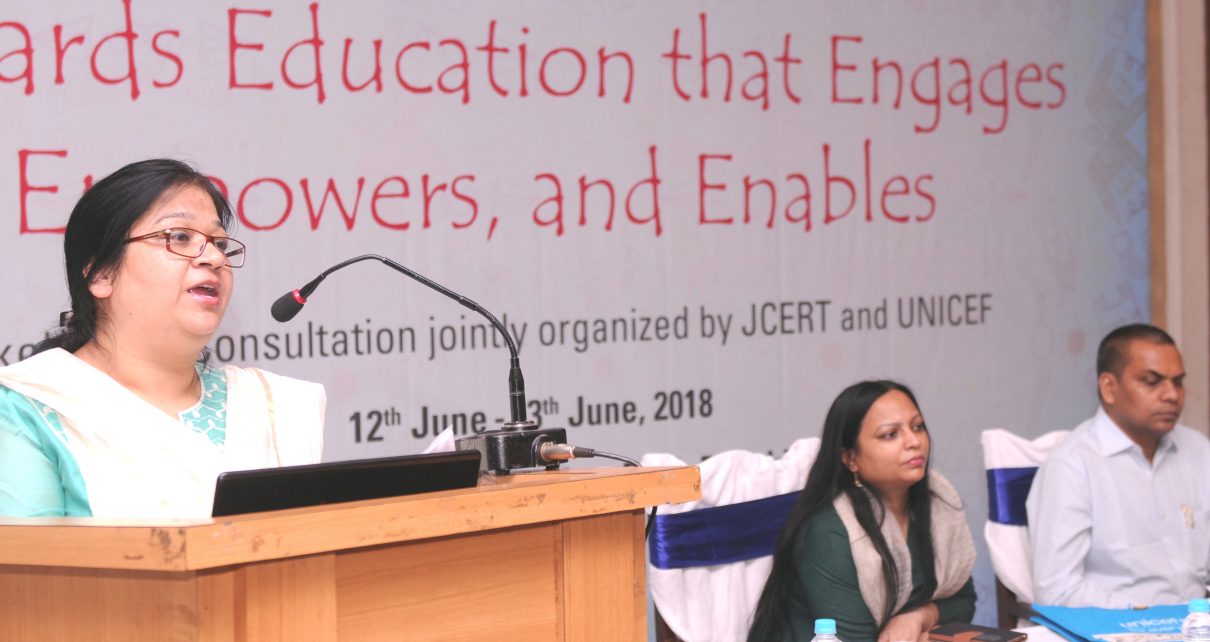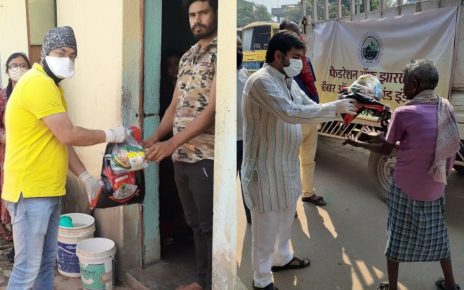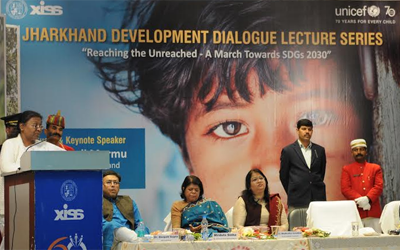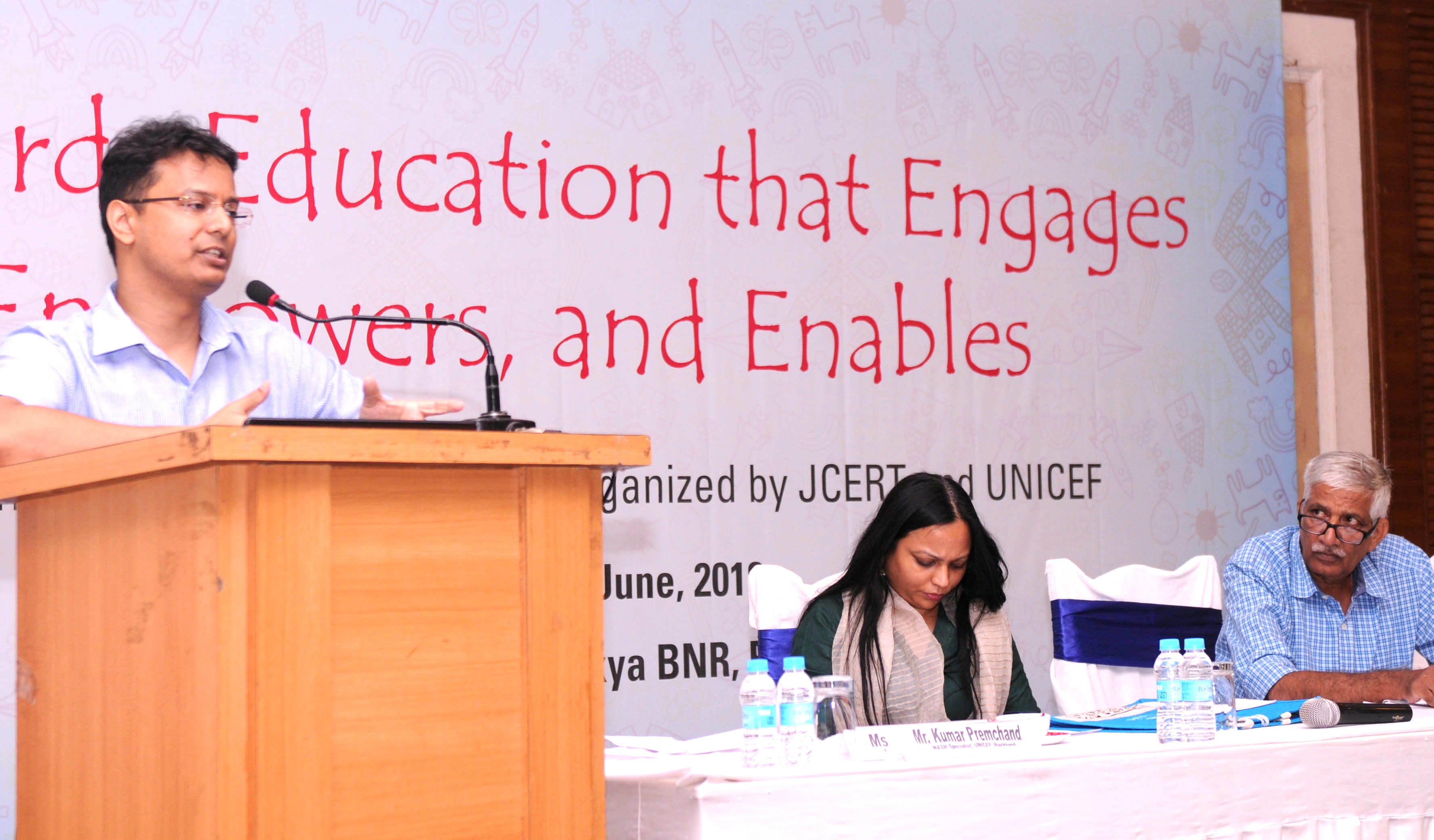
Ranchi, Jharkhand | June | 12, 2018 :: A multi-stakeholder consultation was organized by the Department of Education, Government of Jharkhand and UNICEF here today collate the various NGO interventions around the Right to Education (RTE) and creation of ‘Child Friendly Schools’ in Jharkhand.
During the two day workshop, civil society organizations will showcase positive examples and innovations in the areas of enrolment and retention through sensitization of School management committees (SMCs) and engagement of the community; development of life skills and leadership amongst children; strengthening of Bal Sansad; building teachers’ capacities and skills; and creation of child friendly physical environment (by focusing on sanitation and hygiene); etc from across the state.
This consultation will also provide an opportunity to identify gap areas or unaddressed challenges which may be thematic i.e. focusing on a particular issue or linked to specific geography/ hard to reach pocket and which needs joint action by government and civil society.
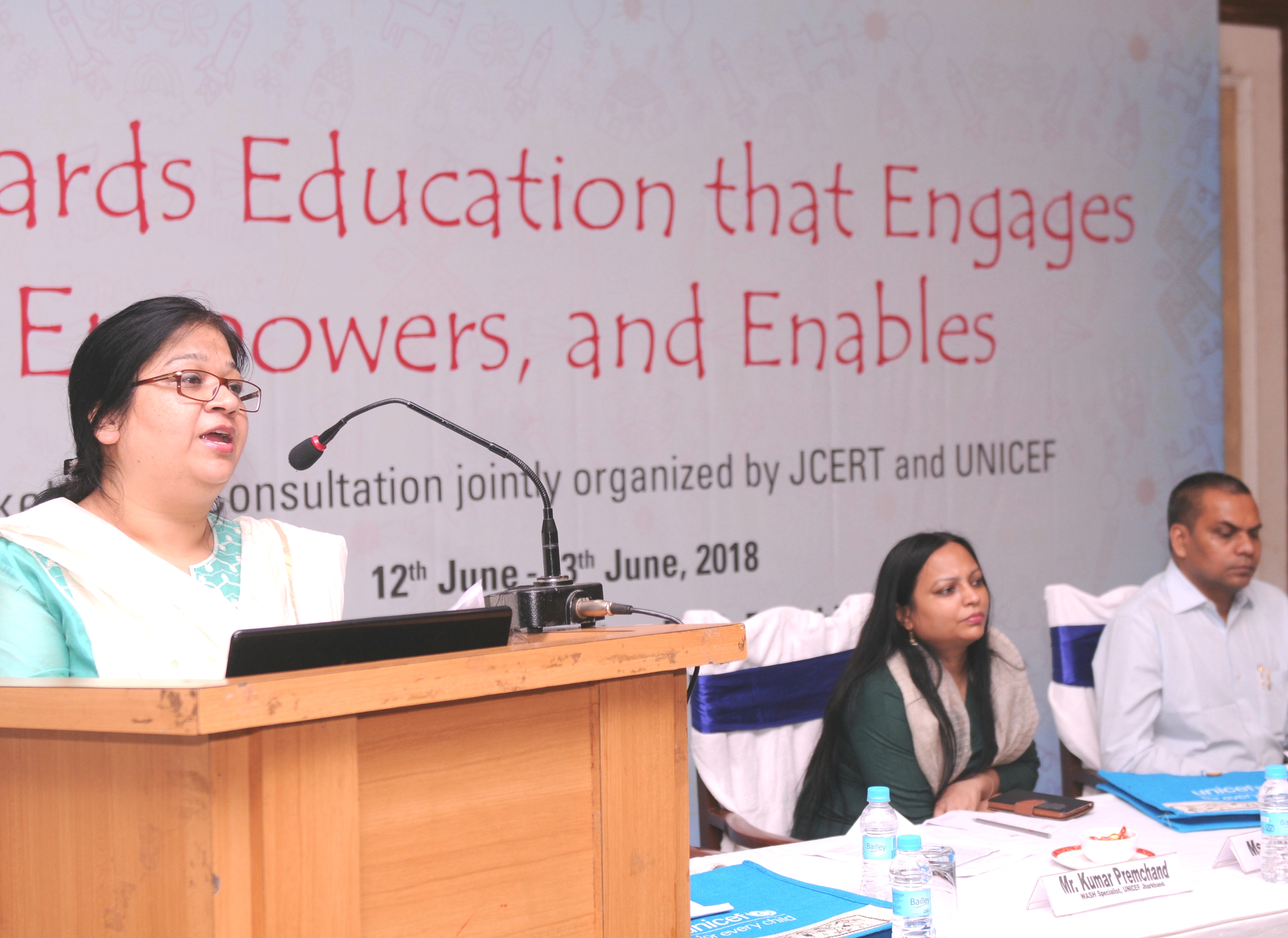
Dr. Madhulika Jonathan, Chief of UNICEF Jharkhand said, “UNICEF is committed towards ensuring children’s rights to survival, protection, development and participation as enshrined in the UNCRC (1989). Education is not just integral to right to development and participation but also plays important role in child protection and child survival. UNICEF’s Child Friendly Schools and System framework outlines the quality parameters for Education. It calls for a holistic, multi-disciplinary approach towards education so as to ensure wellbeing, health, safety, protection and learning for each child without any discrimination. Like the RTE Act 2010, CFSS framework also advocates for conducive physical environment, interactive and learner centered teaching methods, spaces for democratic participation within schools, capacity building of teachers for improved learning outcomes and engagement of communities.”
She added, “Government of Jharkhand has made progress in universalization of elementary education. Latest National Accreditation Survey (NAS) data shows that Jharkhand is performing above national average on learning outcomes. Nevertheless, pressing challenges exist. Gross Enrolment Ratio (GER) at primary and Upper Primary level is above 100, but it decreases sharply at secondary and higher secondary level and settles at 72.6 and 56.7 respectively (Unified District Information System for Education -UDISE).”
Dr. Shailesh Chaurasia, Director, Jharkhand Council of Education, Research and Training (JCERT) said, “Life skills education should be an integral part of the school schedule. Students have diverse needs, backgrounds and temperaments. The education system and society at large should promote respect for diversity and uniqueness of each child.”
Mr. Uma Shanker Singh, State Project Director, Jharkhand Education project Council (JEPC) said, “The quality of teachers is an important factor that influences student learning. There is a need for assessment of teacher’s capacity and to allocate more resources for professional development of teachers. We have a large work force in the form of teachers, we must invest to ensure effectiveness and efficiency of teachers.”
The consultation was attended by international and grassroots level organizations, academicians, key officials from the JCERT and JEPC, Kumar Premchand, WASH Specialist and Parul Sharma, Education Specialist, UNICEF.

